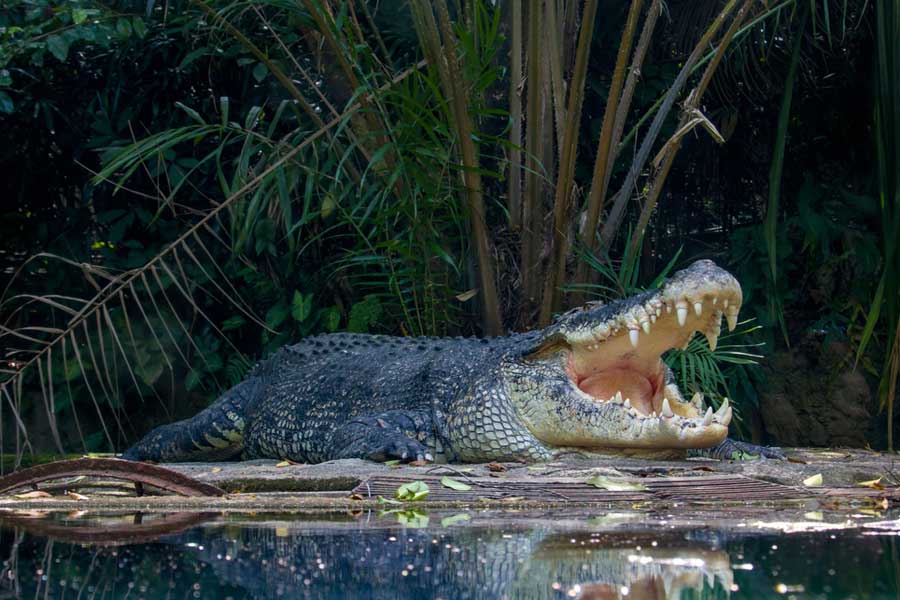The first ever known case of a crocodile who made herself pregnant without male intervention has been identified at a zoo in Costa Rica, scientists say.
The crocodile produced a foetus that was 99.9 per cent genetically identical to herself, the researchers said.
The team, including researchers at Virginia Polytechnic Institute and State University in the US, noted that the finding is the "first documentation" of this very rare mode of reproduction in a crocodile species.
Over the past two decades, zoologists have increasingly documented the vertebrate reproductive strategy of facultative parthenogenesis (FP) in which females lay eggs or give birth without mating.
A wide range of organisms including birds, reptiles like lizards and snakes as well as some fishes, have been shown to reproduce in this strange manner, the researchers said.
The study, published recently in the journal Biology Letters, documented the first evidence of FP in the American crocodile, Crocodylus acutus.
The latest research is based on the 2018 observation of a female crocodile held in captivity for 16 years, which laid a clutch of 14 eggs, one of which contained a fully formed, but stillborn, foetus.
The rare reproductive strategy in crocodilian species has particularly intrigued scientists as these organisms lack sex chromosomes and their sex determination is controlled by the temperature in which eggs develop and hatch.
Scientists say the trait might be inherited from an evolutionary ancestor, so dinosaurs might also have been capable of self-reproduction.
"This evidence offers tantalizing insights into the possible reproductive capabilities of extinct archosaurian relatives of crocodilians, notably the Pterosauria and Dinosauria," the authors wrote in the study.
The crocodile who laid the egg was obtained when she was two years old and was kept apart from other crocodiles for its entire life in Parque Reptilania.
Researcher Warren Booth, who works at Virginia Tech in the US, and colleagues analysed the foetus and found that it was over 99.9 per cent genetically identical to its mother, confirming that there was no male intervention in its birth.
"Building on previous studies, the data advances our understanding of the distribution of FP in vertebrates, particularly in that all previous studies relate to species whose sex is genetically determined," the authors added.
Except for the headline, this story has not been edited by The Telegraph Online staff and has been published from a syndicated feed.











